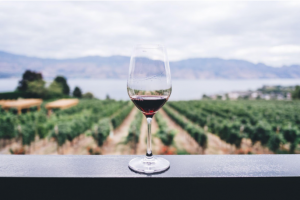When the Nazis overtook France in just six weeks, the world was in shock. France’s army was considered one of the best in the world, but in just weeks, their leader signed a treaty that put the country under German control and moved the riches of France into the Nazi war coffers.
However, there was also a strong French resistance, part of which was led by people which wine aficionados are sure to recognize, like Taittinger, Bollinger, and Moët & Chandon.

Hitler understood the financial value of France’s vineyards and the amount of money the war effort could gain from controlling wine production and sales. The battle to preserve France’s most famous product was a key part of the French struggle in WWII.
The Nazi Occupation & Theft of Wine
When the Nazis took over France, the German soldiers and officers were well aware of France’s famous wine region. In the first few weeks of occupation, soldiers stole over 2 million bottles of wine from the Champagne region.
Restaurants known for their collections of French wine, like La Tour d’Argent, were looted entirely, losing tens of thousands of bottles of wine.
German leaders realized that if they were going to turn wine into money for the war effort, they’d need to be organized. They appointed “weinfuhrers” in the various French wine regions, which each produced wines with different properties. Differences in climate, soil, and weather resulted in each region’s signature vintages. The weinfuhrers were told to collect the best wines and ship them to Germany, where they could sell for a big profit.
However, the German demands for wine were more than winemakers could provide, and the vintners worked together to negotiate with — and eventually fool — the German occupiers.
How the Winemakers Fought Back
In 1939, when the French declared war on Germany, the winemakers made smart preparations. They’d learned a lot from WWI, and used their large, winding wine cellars to carefully obscure the best vintages. They built new walls to hide the best bottles and set spiders against the wall to build webs so it wouldn’t seem like new construction.
Even La Tour d’Argent, while the workers couldn’t hide everything, managed to preserve 20,000 bottles of the very best wines in their collection behind a new wall.
Winemakers also changed labels so that inferior vintages were labeled as better ones while labeling the best wines as “poison.” Carpet cleaners in France would deliver dust from cleaned rugs to winemakers, who would then sprinkle it over young wine to make it seem much like a well-aged vintage.
Wine cellars were also used to hide weapons for the resistance, as well as Allied soldiers and fleeing Jews. Even more importantly, large orders of wine to certain areas revealed that the Nazis were going to mount offensives there, and this information was given to British intelligence officials.
After the war, around 500,000 bottles of France’s best wine were found in Hitler’s private wine cellar. Recovering these treasures was among the biggest triumphs for the French Allied soldiers.
Celebrating the Resistance, Preserving a Legacy
Today, many wine enthusiasts collect specific wines World War II in order to preserve this history. It’s crucial to protect these historic wines carefully in order to preserve them. To keep these collectibles safe, collectors ensure they are stored at the right temperature and away from light.
There’s no doubt that those who resisted the Nazis were courageous and deserve to be celebrated. Their ingenuity and bravery helped protect France’s precious resources and gave intelligence to Allied forces regarding German movements.
In fact, why not get a glass of your favorite French wine and raise a toast to the heroic winemakers of WWII? After all, they are a large part of why we have access to these great wines today.
Cite This Article
"The Winemakers and Their Resistance" History on the Net© 2000-2024, Salem Media.
April 27, 2024 <https://www.historyonthenet.com/the-winemakers-and-their-resistance>
More Citation Information.





